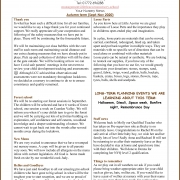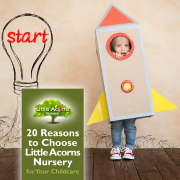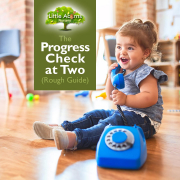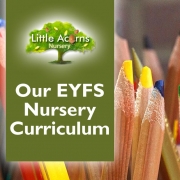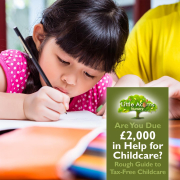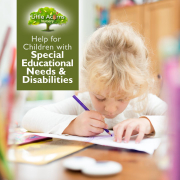The Rewards of Learning a Musical Instrument in Early Childhood

 While listening to music has a unique way of resonating with the human spirit, actually creating it on a musical instrument elevates that connection to entirely new levels. What’s more, learning to play an instrument leads to a whole host of multifaceted benefits. Whether tinkling piano keys, strumming guitar strings, or playing a wind instrument, children who learn to play a musical instrument will soon discover a whole world of opportunities and advantages that extend far beyond the realm of melody and harmony. With that in mind, today’s article explores the myriad of sometimes surprising benefits that learning to play music will bring to children, even at a very young age. Take a look below and discover how musicianship could benefit your child, extend their skills and potentially enrich their life profoundly.
While listening to music has a unique way of resonating with the human spirit, actually creating it on a musical instrument elevates that connection to entirely new levels. What’s more, learning to play an instrument leads to a whole host of multifaceted benefits. Whether tinkling piano keys, strumming guitar strings, or playing a wind instrument, children who learn to play a musical instrument will soon discover a whole world of opportunities and advantages that extend far beyond the realm of melody and harmony. With that in mind, today’s article explores the myriad of sometimes surprising benefits that learning to play music will bring to children, even at a very young age. Take a look below and discover how musicianship could benefit your child, extend their skills and potentially enrich their life profoundly.
Emotional and Psychological Benefits
At an emotional and psychological level, music is a universal language — and it speaks to the heart. It’s no surprise, therefore, that learning an instrument can foster emotional intelligence, facilitate self-expression, and aid stress reduction in children. It provides a perfect safe space from which they can explore and express their feelings. From the soothing melodies that can calm their nerves to the triumphant crescendos that may boost mood and confidence, music has a truly profound impact on their emotional well-being.
Studies have shown that when a child learns to play an instrument, their brain undergoes changes in areas related to memory, problem-solving, and emotional processing.
Cognitive Benefits
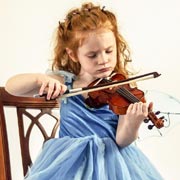 The influence of music on brain development is nothing short of remarkable. Learning to play an instrument engages various parts of the brain simultaneously and is like a 360-degree workout for the mind! As such, its cognitive benefits are profound. Children who take up musical instruments therefore tend to excel in memory, problem-solving, and mathematical skills. Indeed, studies have shown that musical training can lead to improved academic performance, enhancing children’s abilities, particularly in subjects like mathematics and science. So, when your child learns to play a violin, piano, guitar or even a simple recorder, they’re not just making music; they’re also fine-tuning their cognitive abilities.
The influence of music on brain development is nothing short of remarkable. Learning to play an instrument engages various parts of the brain simultaneously and is like a 360-degree workout for the mind! As such, its cognitive benefits are profound. Children who take up musical instruments therefore tend to excel in memory, problem-solving, and mathematical skills. Indeed, studies have shown that musical training can lead to improved academic performance, enhancing children’s abilities, particularly in subjects like mathematics and science. So, when your child learns to play a violin, piano, guitar or even a simple recorder, they’re not just making music; they’re also fine-tuning their cognitive abilities.
Improved Reading Skills
With this workout for the brain comes a deep focus on reading the musical notation and every little detail within it. Such focus will help children to read the written word too. Indeed, by comparison to printed music, text in fiction and non-fiction books may soon seem simple. Better literacy skills will naturally follow.
Enhanced Language & Communication Development
Have you ever noticed how children love to sing along with their favourite songs? Music and language are closely intertwined and the good news is that learning an instrument enhances language acquisition and communication skills in infants and toddlers. Lyrics, rhythmic patterns and melodies help them grasp the nuances of language more effectively, with enhanced listening, hearing and verbal skills coming naturally as a result. As such, an involvement with music sets a strong foundation for communication in children.
Enhanced Creativity & Imagination
 Learning an instrument represents a real journey of creativity and imagination. Children explore melodies, experiment with harmonies, and may often progress to compose their own tunes. This creative process nurtures their imagination and encourages them to think in new and alternative ways. Making music really is a powerful tool for unlocking children’s artistic potential.
Learning an instrument represents a real journey of creativity and imagination. Children explore melodies, experiment with harmonies, and may often progress to compose their own tunes. This creative process nurtures their imagination and encourages them to think in new and alternative ways. Making music really is a powerful tool for unlocking children’s artistic potential.
Improved Coordination & Motor Skills
Whether it’s plucking strings, pressing keys, or striking drums, playing an instrument requires precise coordination and fine motor skills. Practising music while learning to control their instrument will thereby help children develop dexterity and hand-eye coordination. These are important skills that extend to and benefit many other areas of their lives.
Building Confidence & Self-Esteem
Every time a child learns a new piece or performs in front of an audience it will, in turn, naturally boost their self-esteem. Musical achievements are, after all, rather like a series of stepping stones that, once successfully navigated, lead to greater confidence. Through learning to play music, children will learn that with dedication and practice, they can conquer challenges and achieve goals.
Social & Teamwork Skills
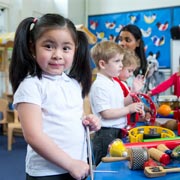 Music is often a collaborative endeavour and that, in itself, will bring additional benefits to children. As well as simply being enjoyable, group music lessons and ensemble playing will teach children valuable social and teamwork skills. Through music-making, they will learn to listen, cooperate, and communicate effectively with others at appropriate times — and even to make more friends. Such skills go well beyond the world of music and are fundamental in importance and positive impact.
Music is often a collaborative endeavour and that, in itself, will bring additional benefits to children. As well as simply being enjoyable, group music lessons and ensemble playing will teach children valuable social and teamwork skills. Through music-making, they will learn to listen, cooperate, and communicate effectively with others at appropriate times — and even to make more friends. Such skills go well beyond the world of music and are fundamental in importance and positive impact.
Improved Self-Discipline
Children who learn to play a musical instrument will establish regular practice routines and tend to commit to a consistent, sustained effort. Such habits will instil good self-discipline and time management skills in the children and these will serve them well in various other aspects of their lives.
Lifelong Passion & Career Opportunities
Perhaps most importantly, learning an instrument can ignite a lifelong passion for music. As the famous musician Sting once said, music is its own reward. It is a gift that keeps on giving, offering joy and fulfilment that can often last throughout children’s lives. And, for those who truly embrace it, music can even open doors to exciting career opportunities in the field.
Age-Appropriate Music Activities
When selecting a musical instrument for a child, several factors should be taken into account. Consider their age, physical size, and dexterity. For example, some instruments like recorders and ocarinas may be more suitable for young beginners, due to their size and simplicity. With that said, how can children get started? Let’s take a brief look.
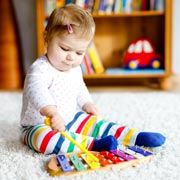 For infants and toddlers, musical exploration can start with simple activities like singing lullabies, clapping to a rhythm, or playing with simple musical or percussive toys. These activities introduce them to the world of sound and rhythm in a playful and engaging way.
For infants and toddlers, musical exploration can start with simple activities like singing lullabies, clapping to a rhythm, or playing with simple musical or percussive toys. These activities introduce them to the world of sound and rhythm in a playful and engaging way.- Preschoolers can begin experimenting with basic instruments like xylophones, shakers, and handbells. Interactive games involving singing and movement help develop their sense of rhythm and coordination. Nursery rhymes and simple songs with repetitive melodies are also excellent choices.
- As children grow, they can explore more complex musical activities. Consider enrolling them in group music classes or introducing them to instruments like the recorder, keyboard, ukulele or, as they grow bigger, larger instruments like guitars, pianos and even cellos. Encourage creativity by allowing them to compose their own songs or experiment with different sounds. Once they become older, they may show interest in specific instruments or genres. Encourage them to join school bands or orchestras, take private lessons, or explore digital music production. The key is to support their evolving interests and skills.
As you can see, the benefits of learning a musical instrument as a child are vast and far-reaching. It’s not just about creating beautiful music; it’s about nurturing so much more than that in children. So, if you’re considering enrolling your child in music lessons, know that you’re not just giving them a skill; you’re giving them a ticket to a world of opportunities and lifelong enjoyment. So, embrace the almost limitless possibilities that music offers, and watch your child flourish in ways you could never have imagined.
Little Acorns: An Outstanding Nursery in Clayton-le-Woods, Chorley


If you’re searching for an outstanding nursery in Clayton-le-Woods or near Chorley, then look no further than Little Acorns Nursery. Rated as an ‘Outstanding Provider’ of childcare services by Ofsted and with a unique national nursery award under its belt, the setting offers the very best start for babies, toddlers and preschoolers in Central Lancashire and beyond. We support all Government-funded childcare schemes for eligible families and are also a Forest School setting where your child can benefit from everything that nature has to offer. Why not register your child for a place, request a guided tour with your child, or ask any questions if you have any? We’ll be delighted to help.
Located at Clayton-le-Woods near Chorley, Little Acorns Nursery may also be convenient for those living or working near Clayton Brook, Clayton Green, Thorpe Green, Pippin Street, Buckshaw Village, Whittle-le-Woods, Farington, Bamber Bridge, Lostock Hall, Euxton, Leyland or Penwortham.

